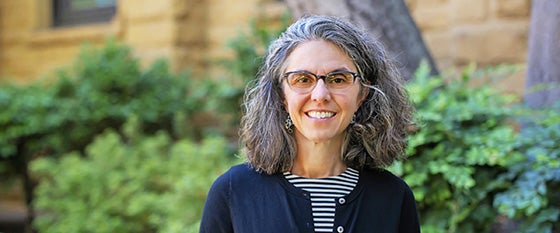A message about COVID-19 for parents and guardians

Dear parents and families,
I am writing today, March 4, to provide an update on Stanford’s response to COVID-19. I know many if not all of you are deeply worried at this point. We all want to learn as much as we can about how this public health emergency might impact us and our loved ones, and we all want to prepare to the greatest extent possible. Thank you for the support you are providing your student.
In response to rapidly evolving events worldwide, in our nation, and our region, Stanford has activated an emergency operations organization focused on coordinating the university’s response. We are aiming to balance two imperatives: We are seeking to continue our work of education and research to the greatest extent possible, while also keeping our community safe and protecting the health of communities beyond our campus, as well.
I would like to extend my gratitude to all who have individually reached out to the university. As parents and family members, you lend a valuable perspective to how we can best prepare as a campus community. We welcome your partnership and appreciate your deep thought and suggestions on this very difficult situation. Please know each message is read and shared with the university’s emergency operations organization for incorporation into our overall planning efforts. We have some of the best minds in the university working on this, including Stanford experts in infectious disease.
The university is committed to on-going updates to the campus community, and we have centralized much of our communications about COVID-19 on this website. There are no reported confirmed cases of COVID-19 among students, faculty and staff at this time. Here are updates especially relevant to students and parents:
- Vaden Health Center is asking any student who develops symptoms (fever, cough or shortness of breath) and has recently traveled from an area with widespread or ongoing community spread of COVID-19 or has been in close contact with a person or persons known to have COVID-19 to call the health center at 650-498-2336 and speak with a medical professional, rather than come in.
- Vaden recommends students with immune-suppressed systems get a flu shot, confirm with their personal physician that they are fully immunized, follow all illness prevention recommendations, and avoid large gatherings.
- Students with a documented disability that includes an elevated level of concern for virus exposure can contact the Office of Accessible Education (OAE) to request academic accommodations. Students who are registered with OAE may contact their disability adviser. Others can reach OAE at 650-723-1066 or oae-contactus@stanford.edu.
- Students who are ill with COVID-19 will be moved to an isolated location with a private bath, and meals will be delivered. The university will be conducting more frequent cleaning in common areas and on commonly touched surfaces. Academic, dining and housing spaces are among those where elevated cleaning will be required.
- Stanford is strongly encouraging university units to cancel or postpone events they are hosting between March 4 and April 15 that involve more than 150 participants. Classes remain in session. The university will help faculty members make appropriate adjustments, given the unique characteristics and requirements of each course.
- The university is suspending all Bing Overseas Studies Program (BOSP) spring quarter study programs scheduled to take place outside of the United States. This is a temporary suspension, undertaken in response to the rapidly evolving events surrounding COVID-19 and our concern for the health and safety of our students. You can read more on the BOSP website.
- Stanford has just issued significantly updated travel guidance, available on our Health Alerts website. The university is recommending against all international travel at this time. We know that many students are making plans for spring break, and we want them to know that they are welcome to stay on campus if they wish to avoid either domestic or international travel.
- No one traveling from China, South Korea, Italy, Iran or any other country with a CDC Level 3 travel health restriction is allowed to be present on campus unless they complete a 14-day self-isolation immediately upon arrival in the United States. This includes all adults and children, with or without symptoms. It also applies to visitors to Stanford.
We are carefully considering the impact of COVID-19 on all student communities. We have heard from colleagues and students across the country regarding a rise in xenophobia, and specifically anti-Asian racism fueled in part by fear of coronavirus. On February 11, Dean of Students Mona Hicks emailed all students urging solidarity with one another, so that fears and lack of understanding do not turn into bias or hate. Our campus values of integrity, diversity, respect and trust must be upheld in a climate of support for our international community members.
In closing, I would like to acknowledge that difficult news like this can take a toll on our whole health. Through our network of student and professional staff members, we do our very best to be present for every student. We remind students often of our campus resources, and help them connect with medical and psychological services. If you have a student in need, please do not hesitate to reach out to us via our parent helpline at mykidis@stanford.edu or 650-725-0649.
Sincerely,
Susie Brubaker-Cole
Vice Provost for Student Affairs
